13th Chess Olympiad
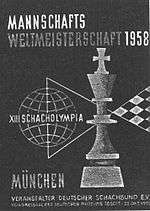
The 13th Chess Olympiad, organized by FIDE and comprising an open[1] team tournament, as well as several other events designed to promote the game of chess, took place between September 30 and October 23, 1958, in Munich, West Germany.
The Soviet team with 6 GMs, led by world champion Botvinnik, lived up to expectations and won their fourth gold medals in a row, with Yugoslavia and Argentina taking the silver and bronze, respectively. The West German hosts finished 7th, right behind rivals East Germany. The two neighbouring nations were tied on both game and match points, but the East Germans had won the match between the two.
Results
Preliminaries
A total of 36 teams entered the competition and were divided into four preliminary groups of nine teams each. The top three from each group advanced to Final A, the teams placed 4th-6th to Final B, and no. 7-9 to Final C. All groups and finals were played as round-robin tournaments.
Group 1 was won by the Soviet hosts, well ahead of Bulgaria and Austria. The Netherlands, Denmark, and France took the places 4-6, while Italy, Puerto Rico, and Ireland finished at the bottom of the group.
Spain caused a small surprise by taking first place in group 2, ahead of the resurrected US team and the host nation. Finland, Iceland, and Israel made up the middle part of the group, while Norway, South Africa, and Iran had to settle for the bottom.
Group 3 was won by Argentina, ahead of East Germany and England. Traditional chess power Hungary surprisingly had to settle for Final B, along with Poland and Colombia. Meanwhile, The Philippines, Scotland, and Lebanon finished at the bottom of the group.
Czechoslovakia clinched group 4, ahead of Yugoslavia and Switzerland. Canada, Sweden, and Belgium made up the middle part of the group, while Portugal, Tunisia, and Greece completed the field.
Final
Final A # Country Players Points MP Head-to-head 1  Soviet Union
Soviet Union Botvinnik, Smyslov, Keres, Bronstein, Tal, Petrosian 34½ 2 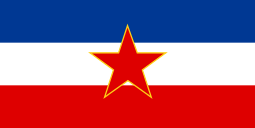 Yugoslavia
Yugoslavia Gligorić, Matanović, Ivkov, Trifunović, Đurašević, Fuderer 29 3  Argentina
Argentina Pilnik, Panno, Eliskases, Redolfi, Sanguineti, Emma 25½ 4 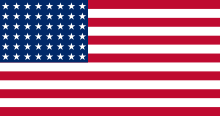 USA
USA Reshevsky, Lombardy, Bisguier, Evans, Rossolimo 24 5  Czechoslovakia
Czechoslovakia Pachman, Filip, Fichtl, Kozma, Rejfíř, Šefc 22 12 6  East Germany
East Germany Uhlmann, Malich, Dittmann, Bertholdt, Fuchs, Pietzsch 22 11 3½ 7  West Germany
West Germany Unzicker, Tröger, Schmid, Darga, Pfeiffer, Lehmann 22 11 ½ 8  Switzerland
Switzerland Kupper, Blau, Keller, Walther, Nievergelt, Bhend 19 9 .svg.png) Spain
Spain Pomar, Pérez, Torán Albero, Farre, Albareda, Lladó Lumbera 17½ 10 .svg.png) Bulgaria
Bulgaria Neikirch, Bobotsov, Minev, Milev, Tringov, Padevsky 17 11  England
England Alexander, Penrose, Golombek, Clarke, Wade 16 12  Austria
Austria Dückstein, Prameshuber, Stöckl, Beni, Lokvenc 15½ Final B # Country Points MP 13  Hungary
Hungary 31 14  Netherlands
Netherlands 28 15 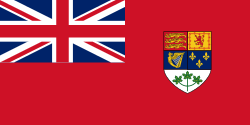 Canada
Canada 24½ 17 16  Colombia
Colombia 24½ 13 17  Israel
Israel 23½ 18  Denmark
Denmark 23 19  Poland
Poland 22½ 20  Sweden
Sweden 21 21  Finland
Finland 19 22  Iceland
Iceland 18 23  France
France 15 24 .svg.png) Belgium
Belgium 13½ Final C # Country Points MP Head-to-head 25  Norway
Norway 30 26  Philippines
Philippines 29½ 27 .svg.png) South Africa
South Africa 28 28  Italy
Italy 26½ 29  Scotland
Scotland 25½ 30 .svg.png) Greece
Greece 25 31  Portugal
Portugal 23 32 .svg.png) Iran
Iran 20 33 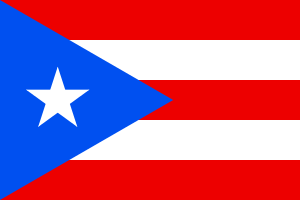 Puerto Rico
Puerto Rico 14½ 4 2½ 34  Ireland
Ireland 14½ 4 1½ 35 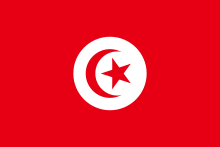 Tunisia
Tunisia 14 36  Lebanon
Lebanon 13½
Individual medals
- Board 1:
 Svetozar Gligorić 12 / 15 = 80.0%
Svetozar Gligorić 12 / 15 = 80.0% - Board 2:
 Frank Anderson 10½ / 13 = 80.8%
Frank Anderson 10½ / 13 = 80.8% - Board 3:
 Paul Keres 9½ / 12 = 79.2%
Paul Keres 9½ / 12 = 79.2% - Board 4:
 David Bronstein 9½ / 12 = 79.2%
David Bronstein 9½ / 12 = 79.2% - 1st reserve:
 Mikhail Tal 13½ / 15 = 90.0%
Mikhail Tal 13½ / 15 = 90.0% - 2nd reserve:
 Tigran Petrosian and
Tigran Petrosian and .svg.png) Győző Forintos 10½ / 13 = 80.8%
Győző Forintos 10½ / 13 = 80.8%
References
- ↑ Although commonly referred to as the men's division, this section is open to both male and female players.
- 13th Chess Olympiad: Munich 1958 OlimpBase